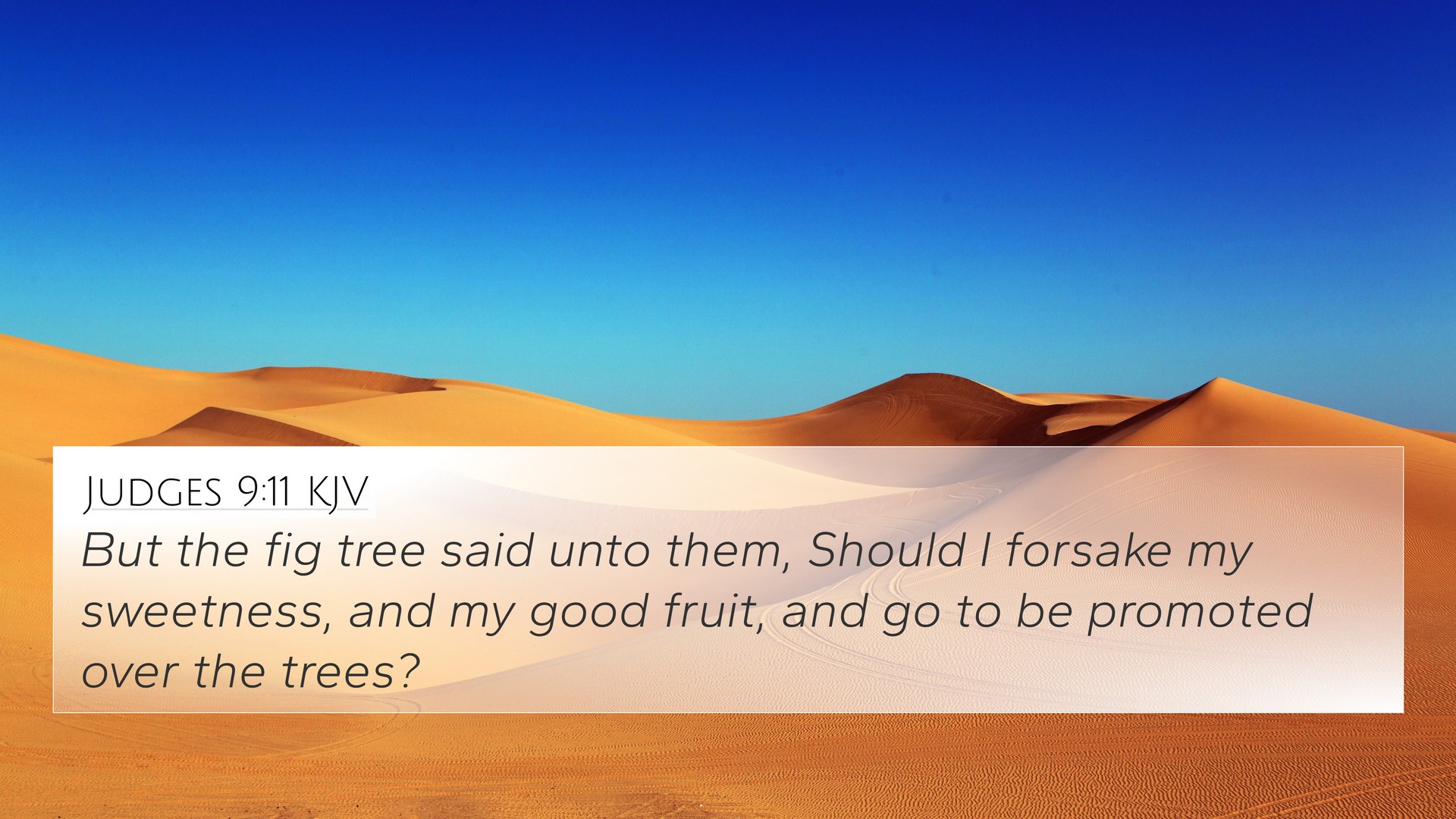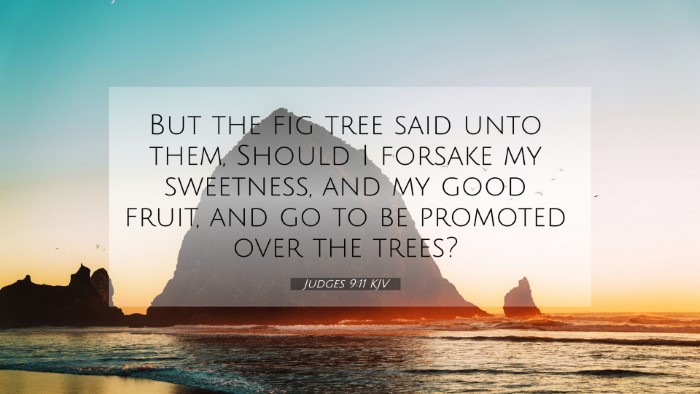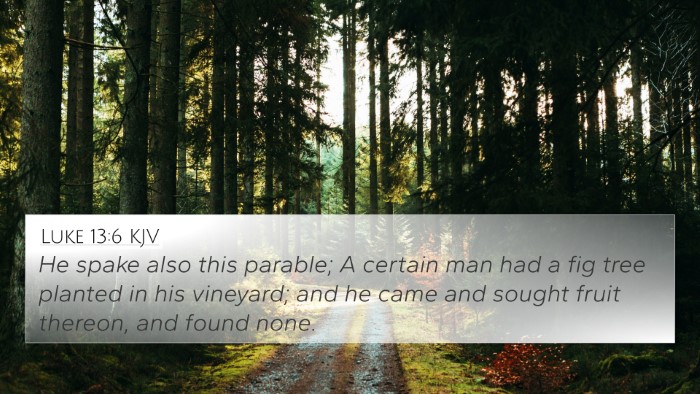Understanding Judges 9:11
Verse: Judges 9:11 states, "But the fig tree said to them, 'Should I forsake my sweetness and my good fruit and go to sway over trees?'"
Summary of Insights
This verse serves as part of the fable wherein various trees seek a king among themselves. The fig tree, rich in sweetness and good fruit, represents productivity and fulfillment of one's purpose. In this context, the refusal of the fig tree to abandon its fruitful status to rule over others teaches a lesson on the themes of leadership, selfish ambition, and the importance of staying true to one's calling.
Commentary Insights
-
Matthew Henry:
Henry emphasizes the fig tree's reluctance to give up its fruitful life, portraying a natural aversion to ambition that compromises one's purpose. He suggests that true leaders prioritize the well-being and productivity of their own calling rather than aspiring for power over others.
-
Albert Barnes:
Barnes interprets the fig tree's response as a metaphor for how those who are fruitful in their own endeavors should avoid sacrificing their roles to take on leadership responsibilities that may benefit them less or harm their inherent purpose.
-
Adam Clarke:
Clarke reflects on the significance of the fig tree, whose very essence is sweetness and fruitfulness, thereby establishing that its qualities are vital for true leadership. He correlates this with the nature of good leaders who serve rather than rule through mere ambition.
Cross-References for Further Understanding
- Genesis 49:11: speaks of the blessing of the fig tree and its fruitful nature.
- Matthew 7:16-20: highlights the importance of recognizing good fruit in leaders.
- Galatians 5:22-23: describes the fruits of the Spirit, emphasizing the value of inner qualities.
- 1 Peter 5:2-3: advises that leaders should serve willingly and not for selfish gain.
- Proverbs 29:2: mentions that when the righteous are in authority, the people rejoice, indicating the role of moral integrity in leadership.
- Isaiah 5:1-7: presents a parable about a vineyard, related to caring for what is fruitful.
- Luke 6:43-45: stresses that a good tree brings forth good fruit, reflecting character and intent.
Theme Analysis
This verse ties into recurrent Biblical themes of leadership and fruitfulness. It parallels teachings on the importance of character and integrity in the role of a leader as reflected across other scriptures. The fig tree’s symbolic refusal to abandon its nature aids in drawing connections between humble servanthood and ambition.
Conclusion
Judges 9:11, viewed through the lens of wisdom from public domain commentaries, serves not only as a narrative about trees but profoundly reflects the values that govern leadership and service in the Bible. Through cross-references, we see that themes of fruitfulness, integrity, and purpose resonate throughout Scripture, encouraging believers to embrace their rightful roles without seeking undue ambition.
Reflection
Contemplating this verse invites an evaluation of our motivations for leadership and engagement in communal roles. Are we like the fig tree, valued for our unique gifts, or are we tempted to forsake our calling for a different kind of recognition? These questions foster deeper understanding of God's purpose for each individual.



